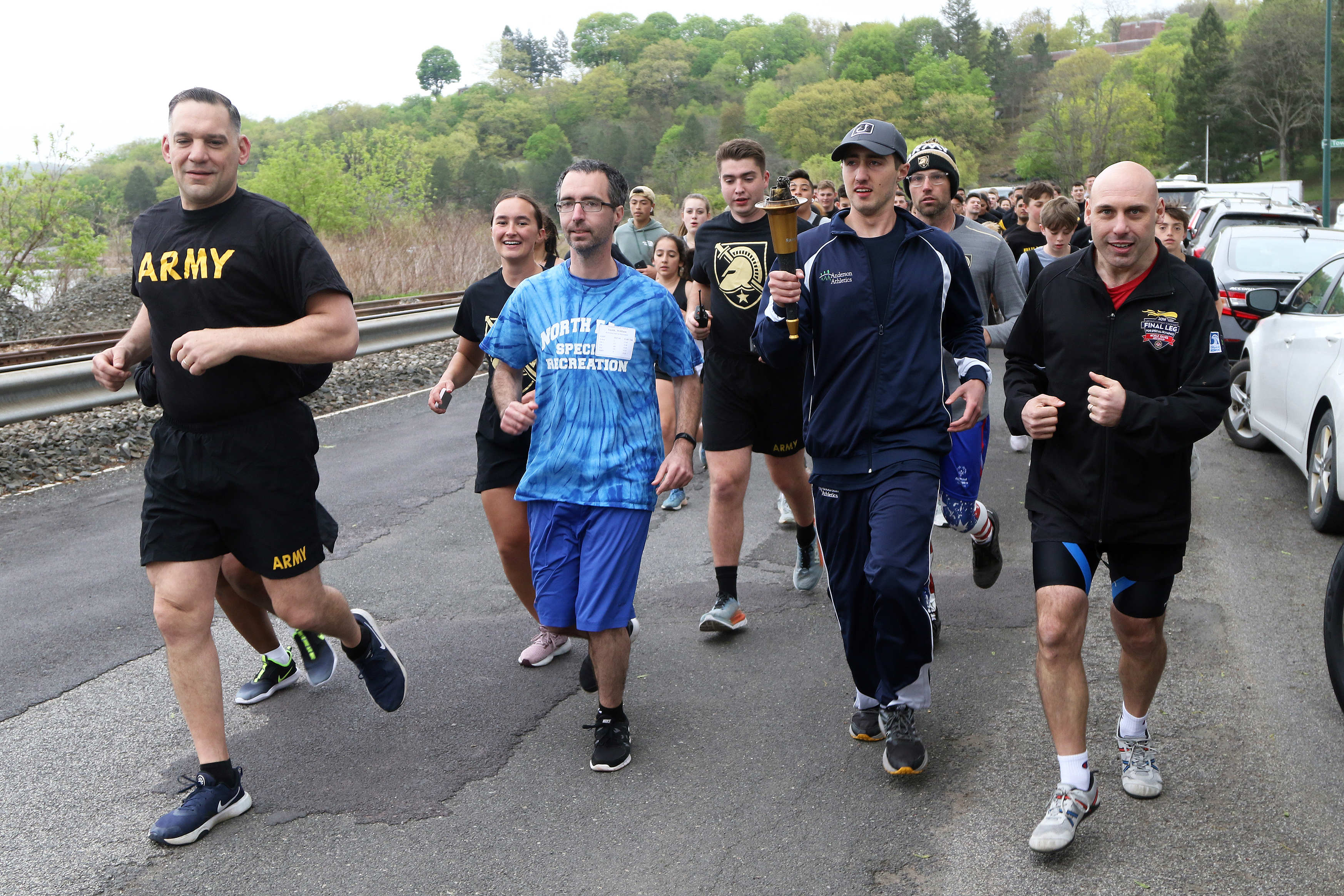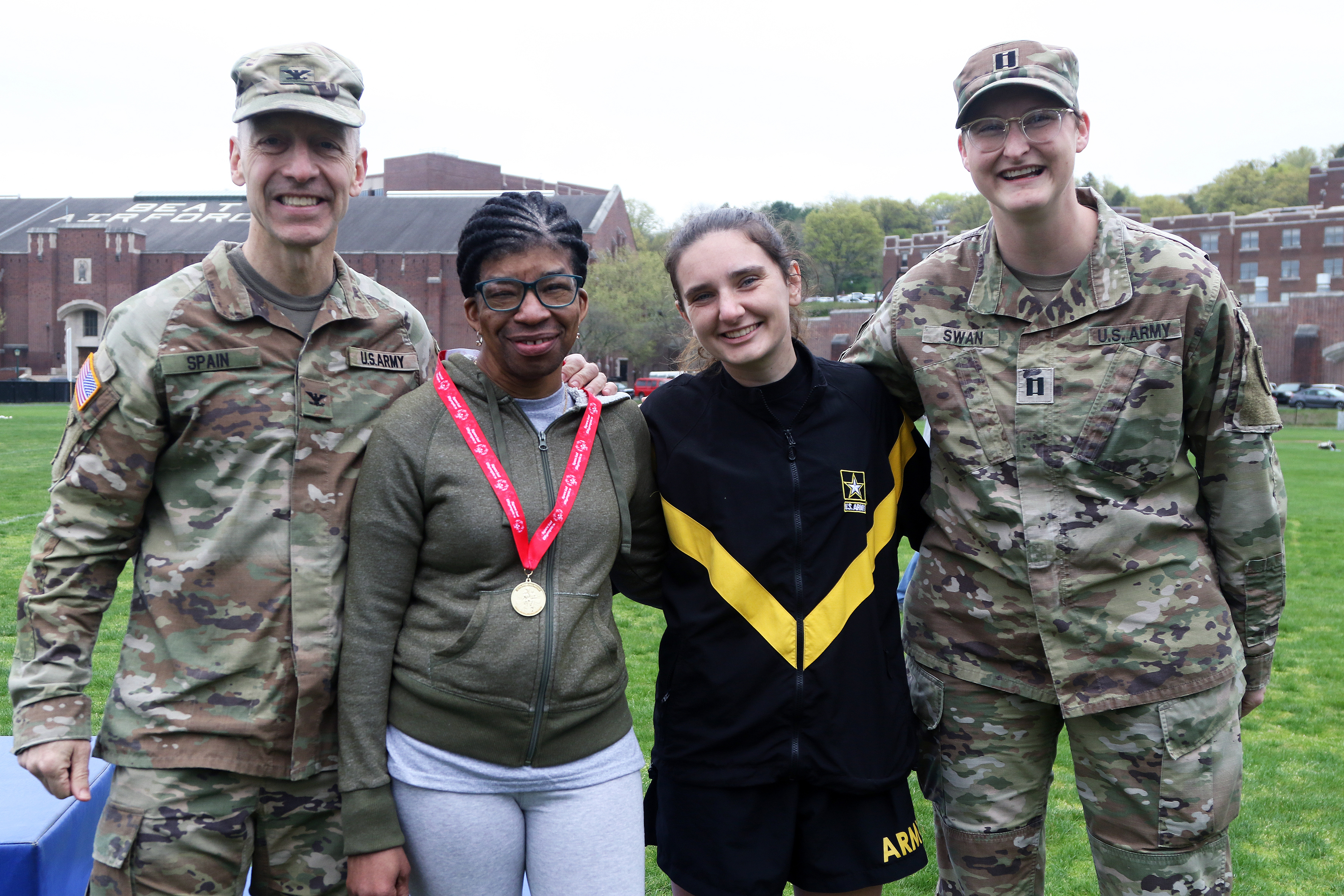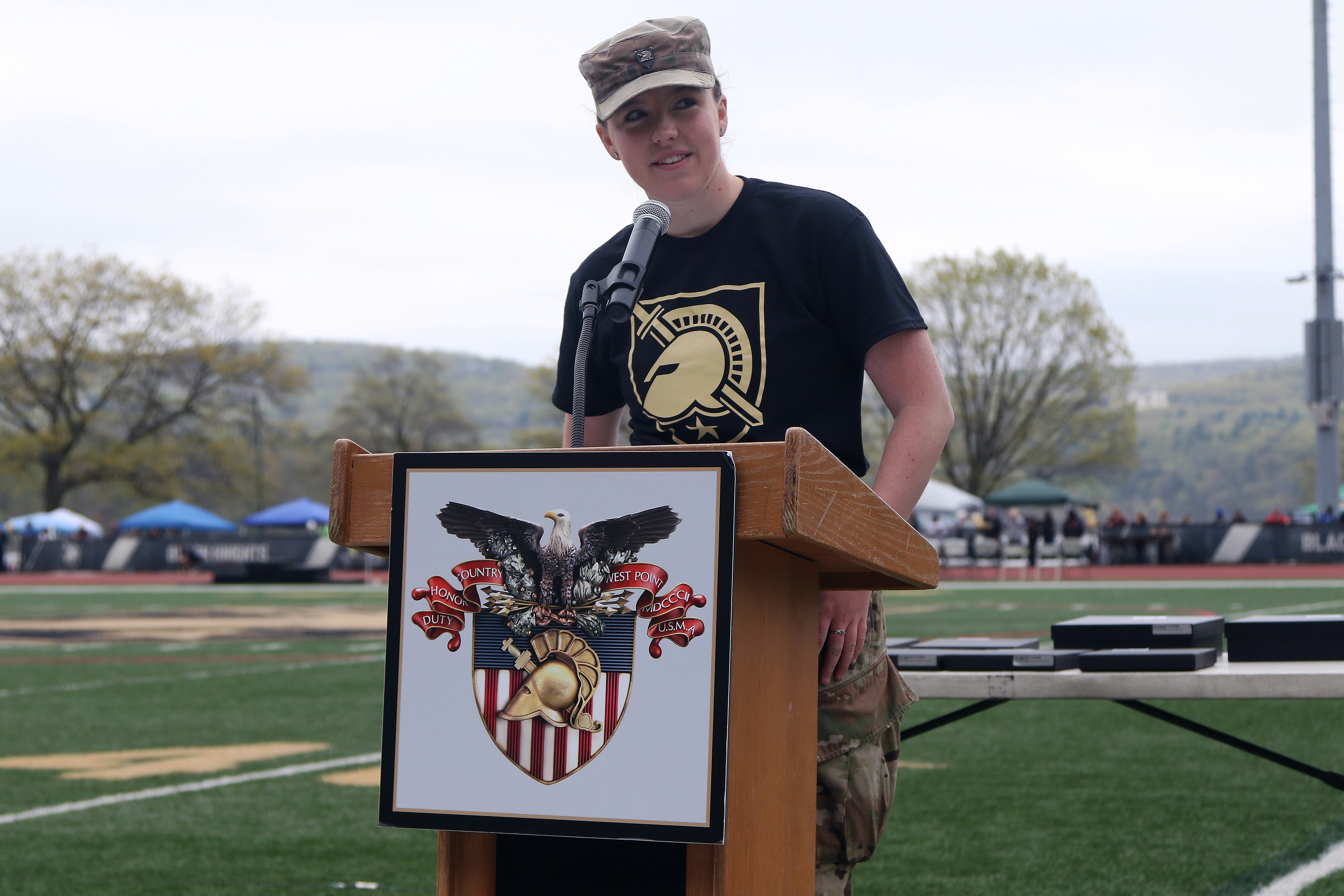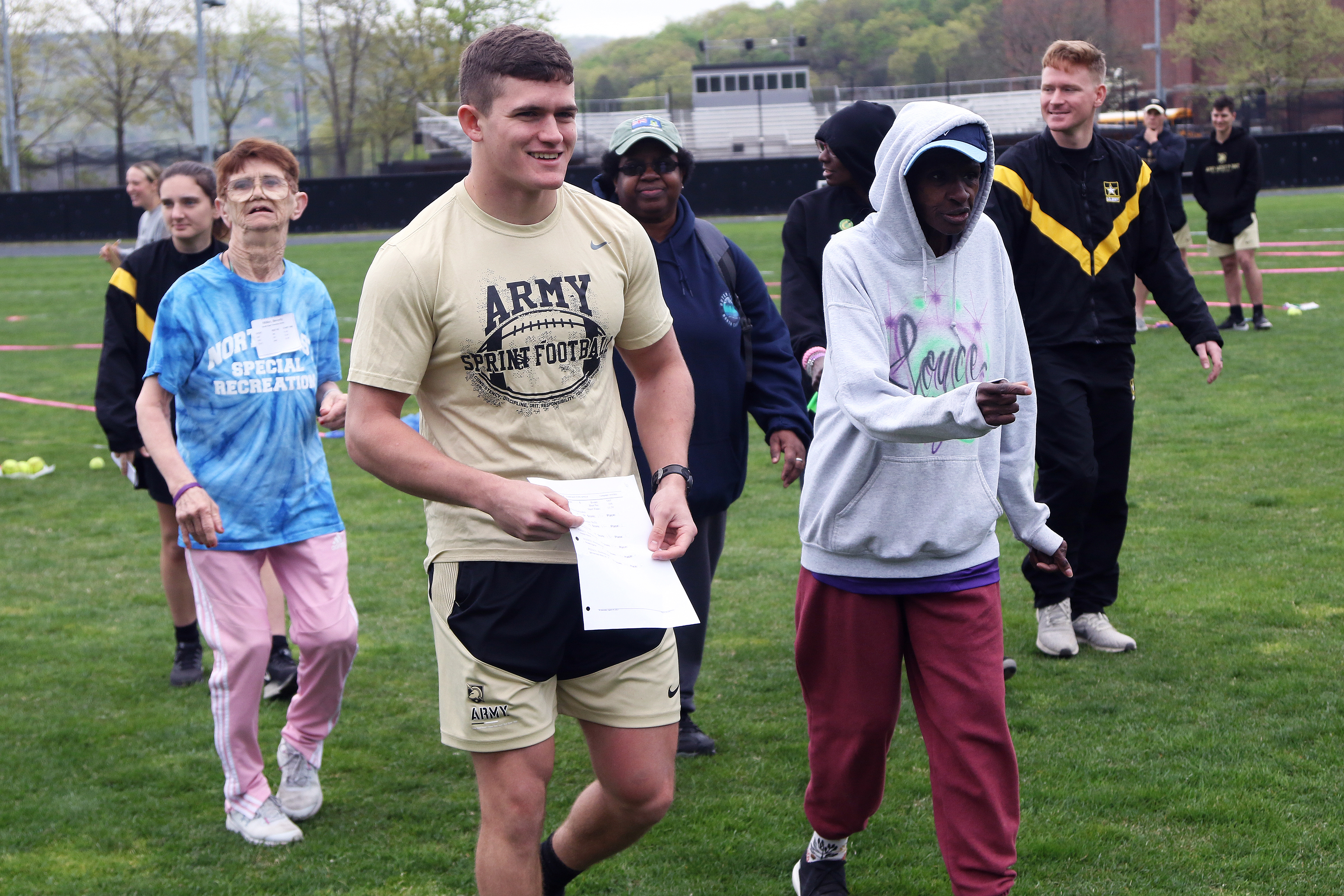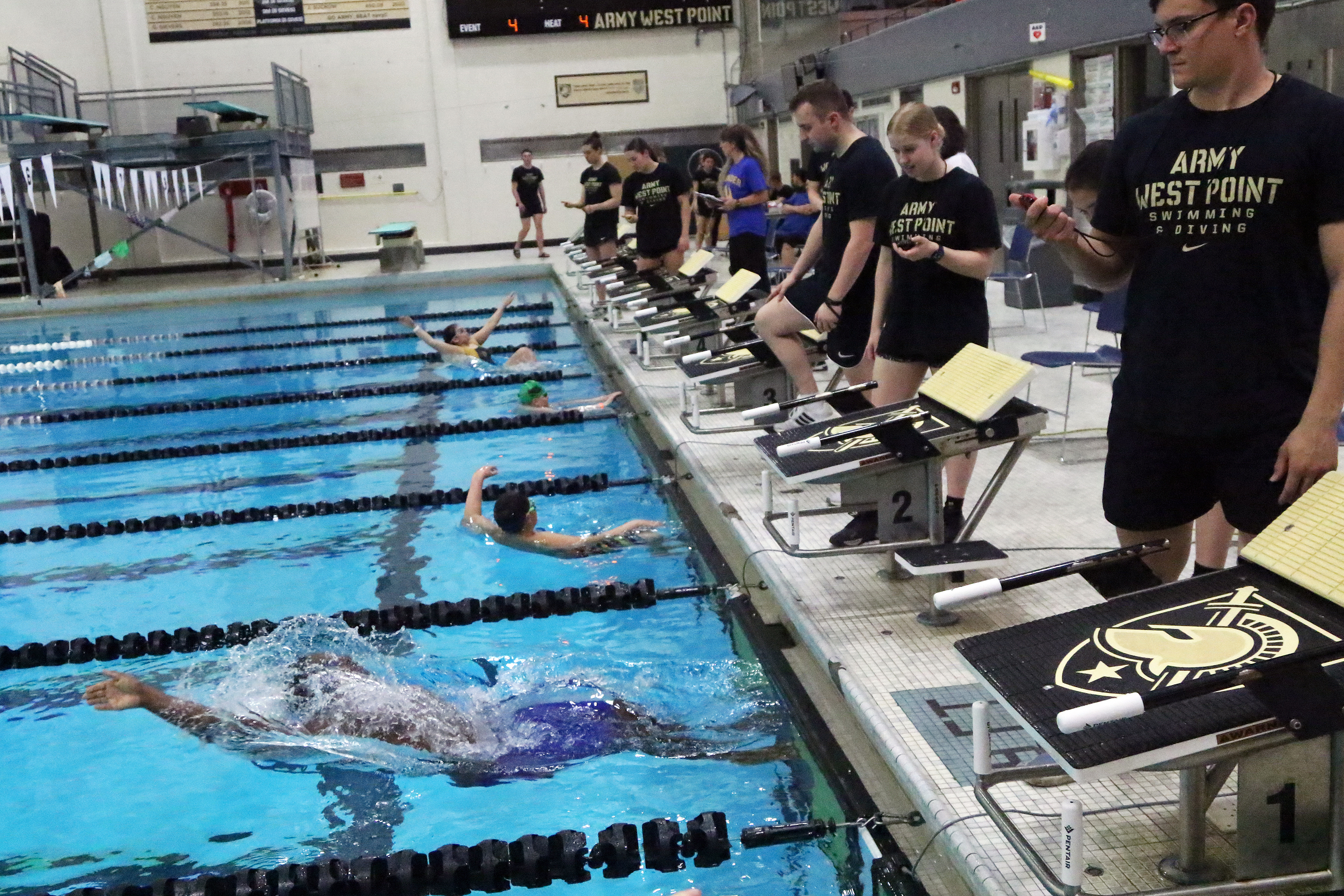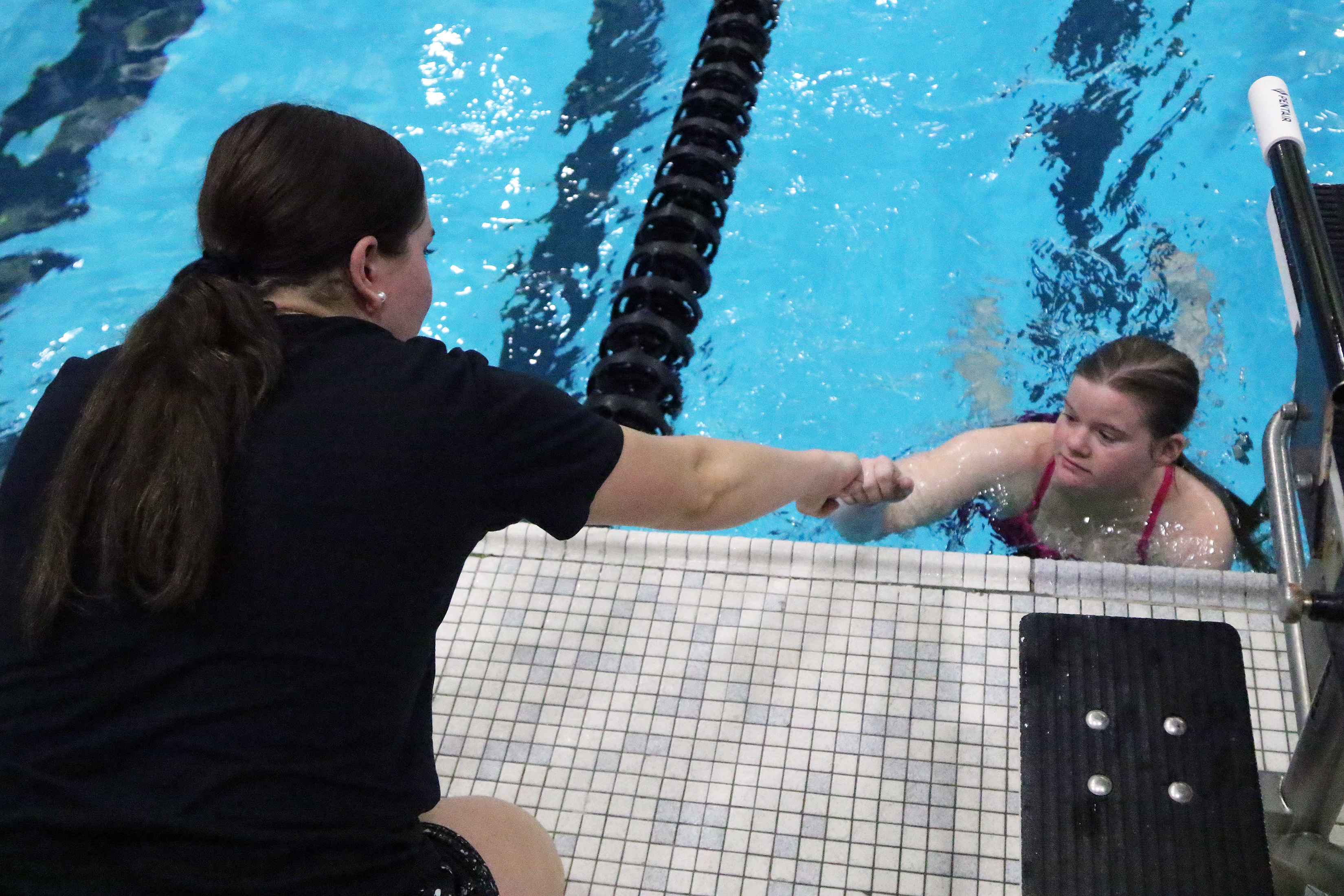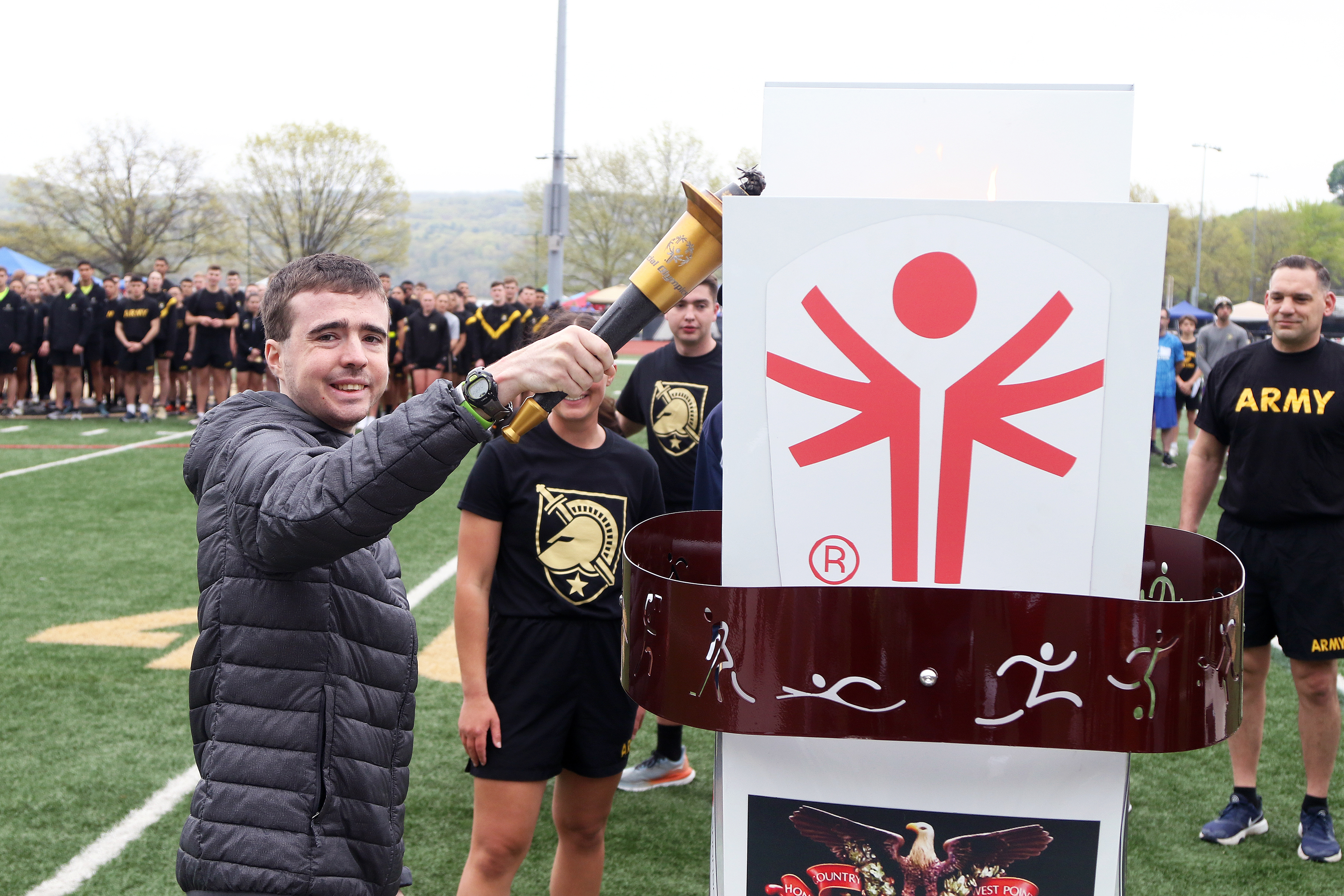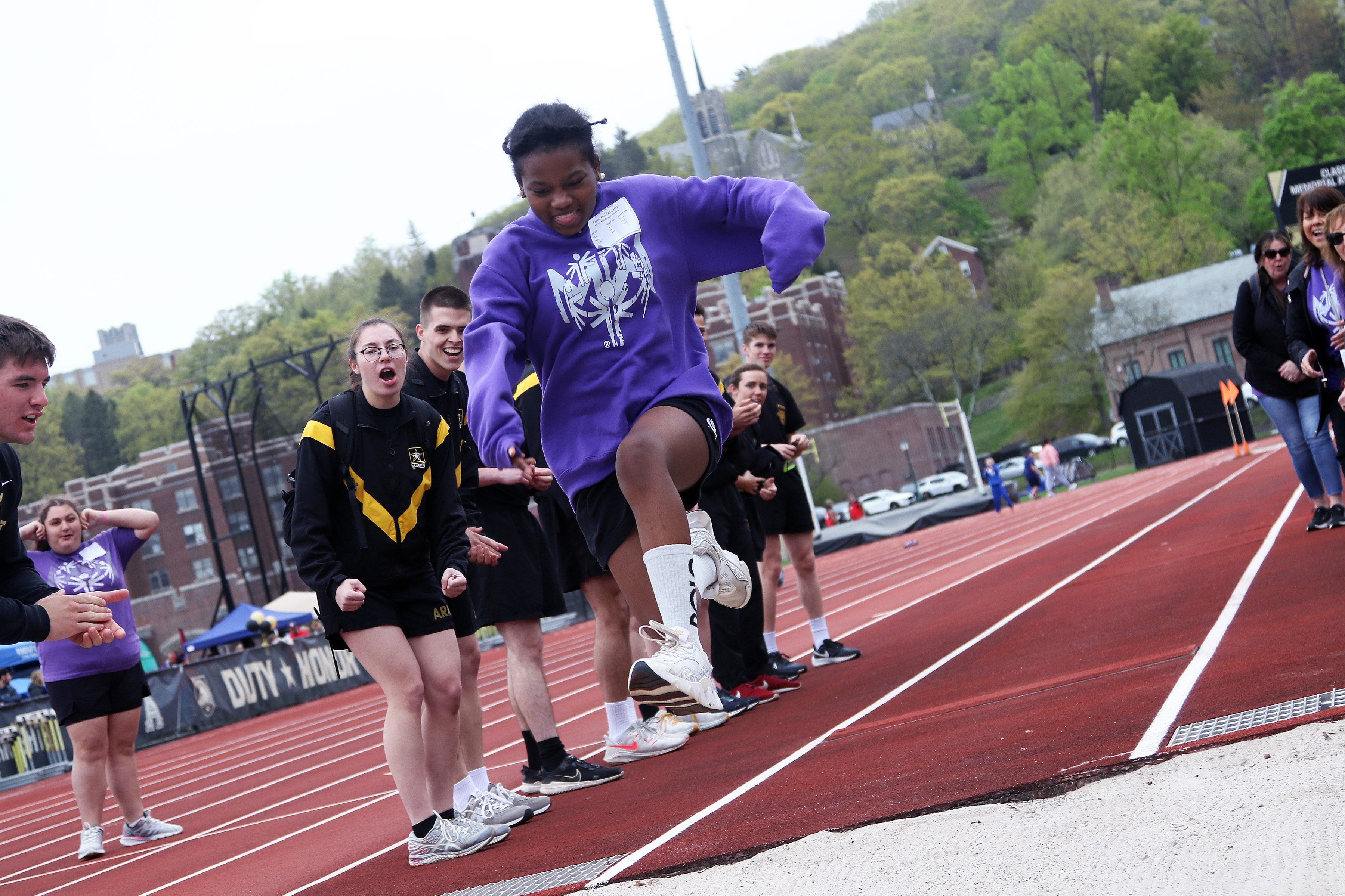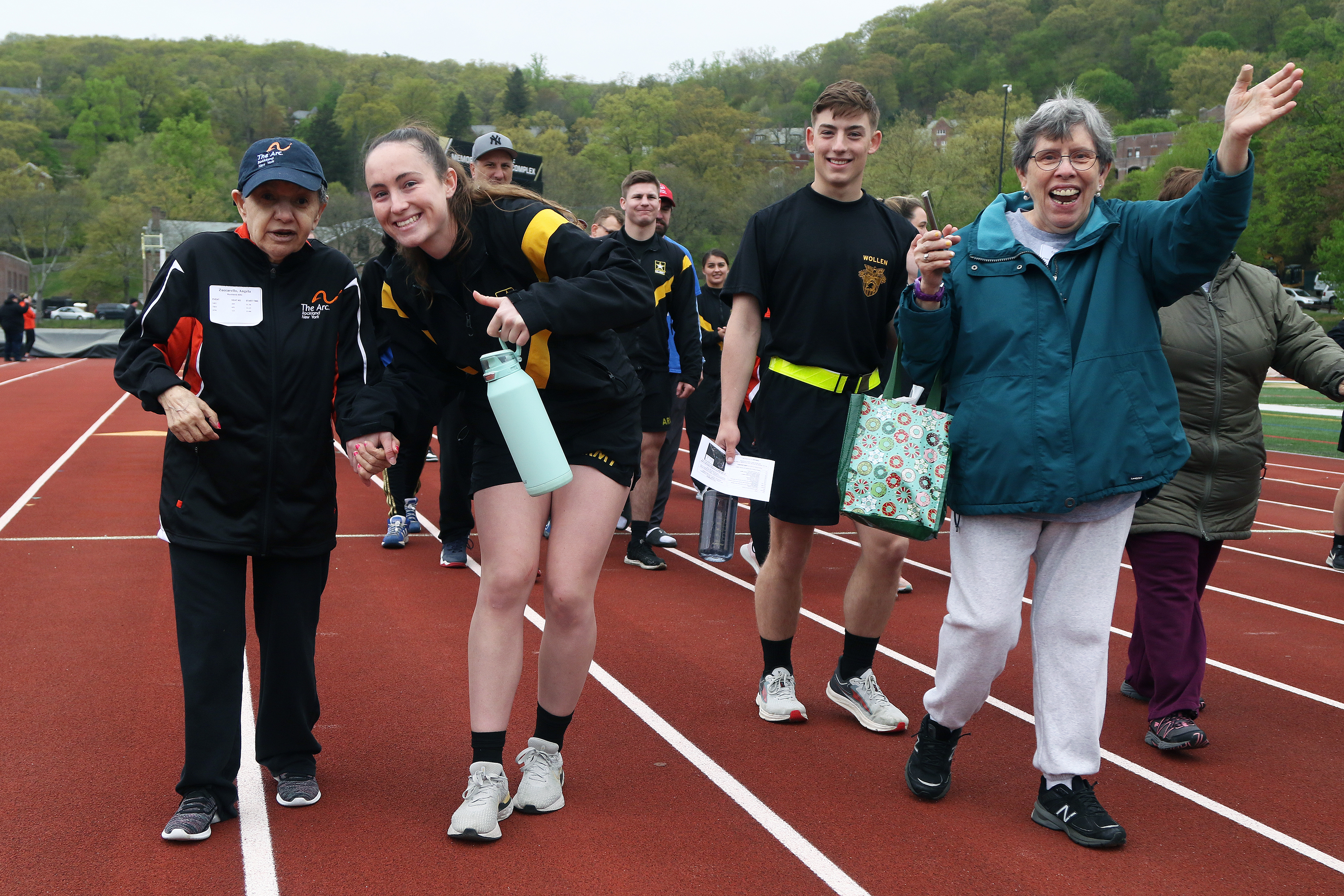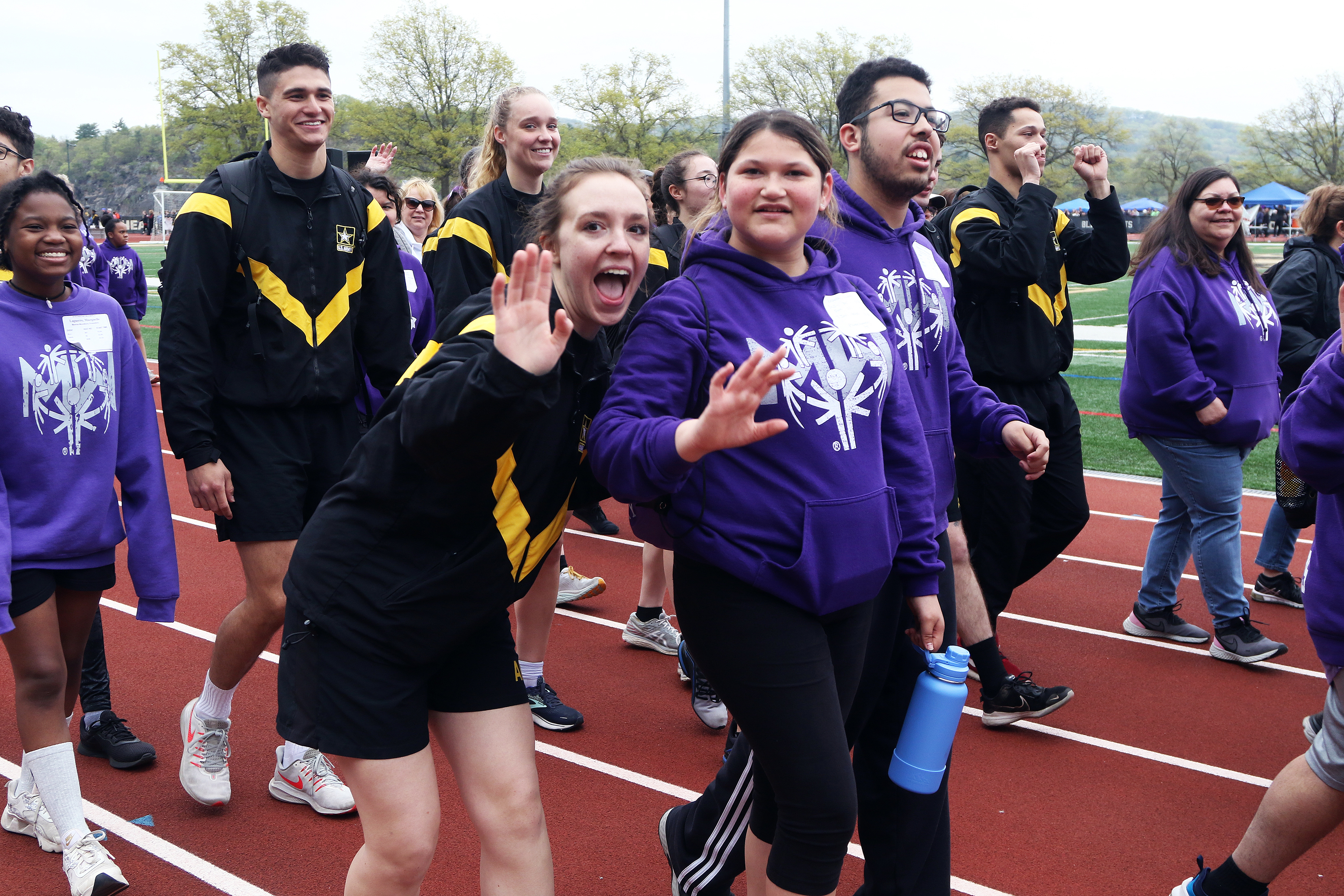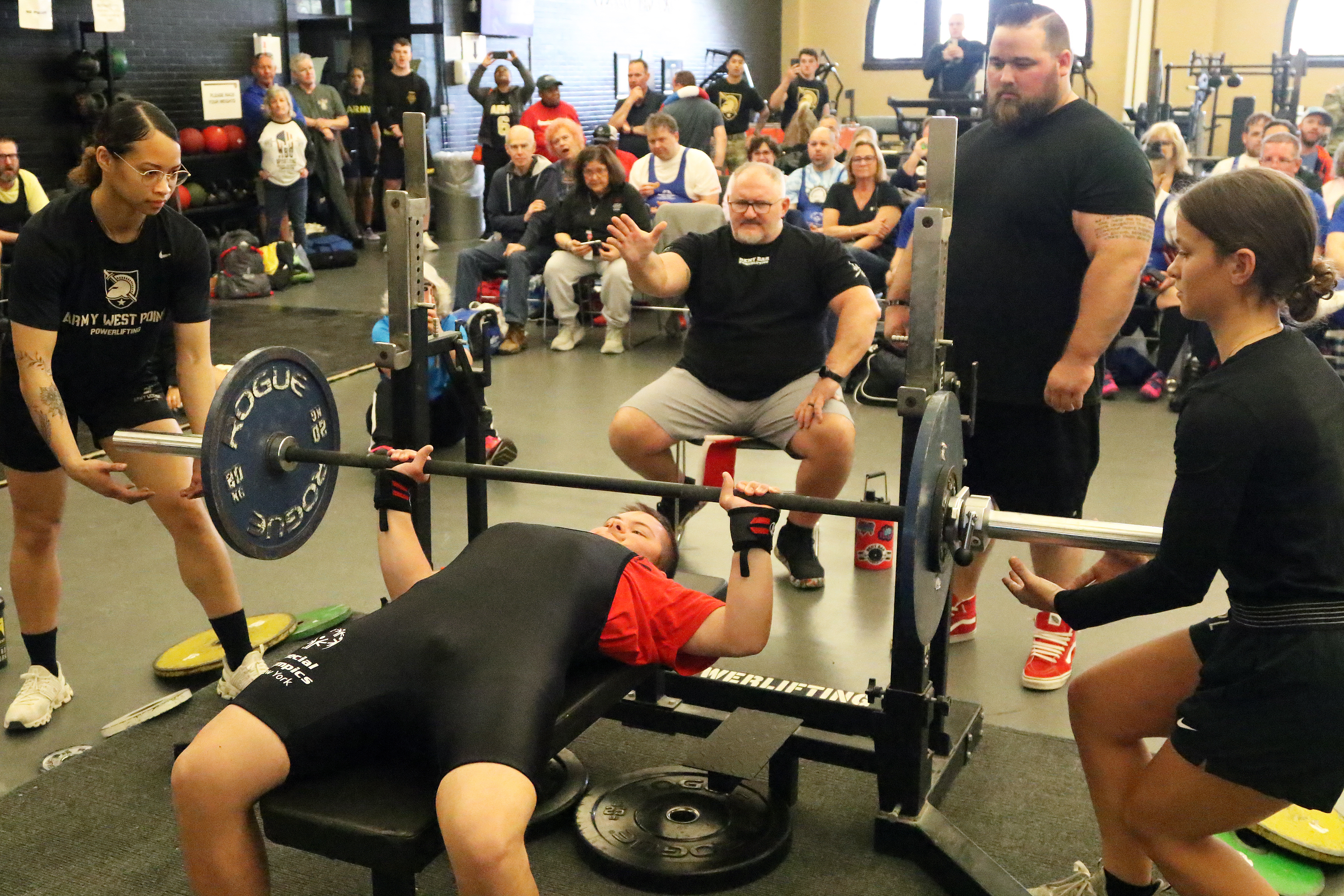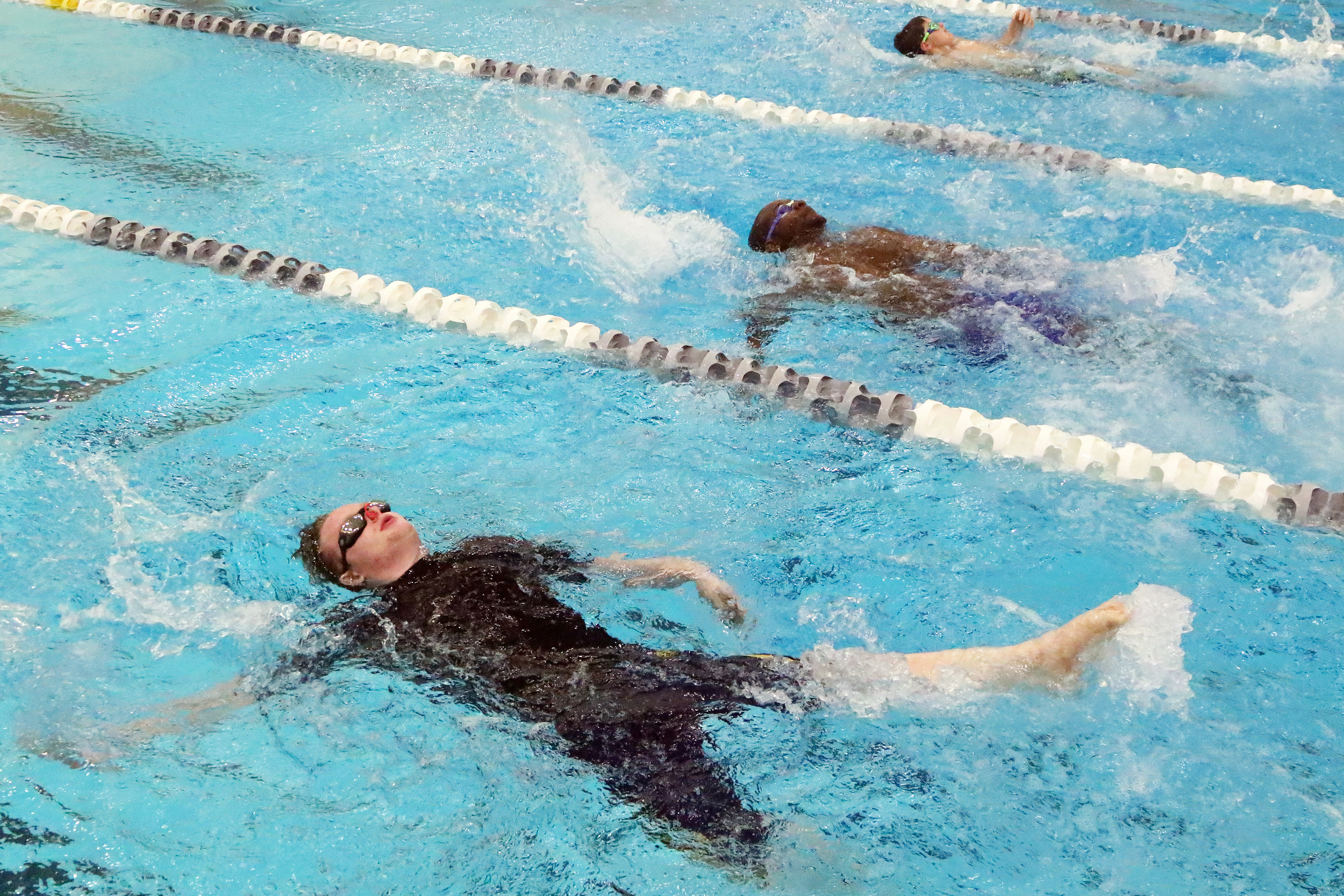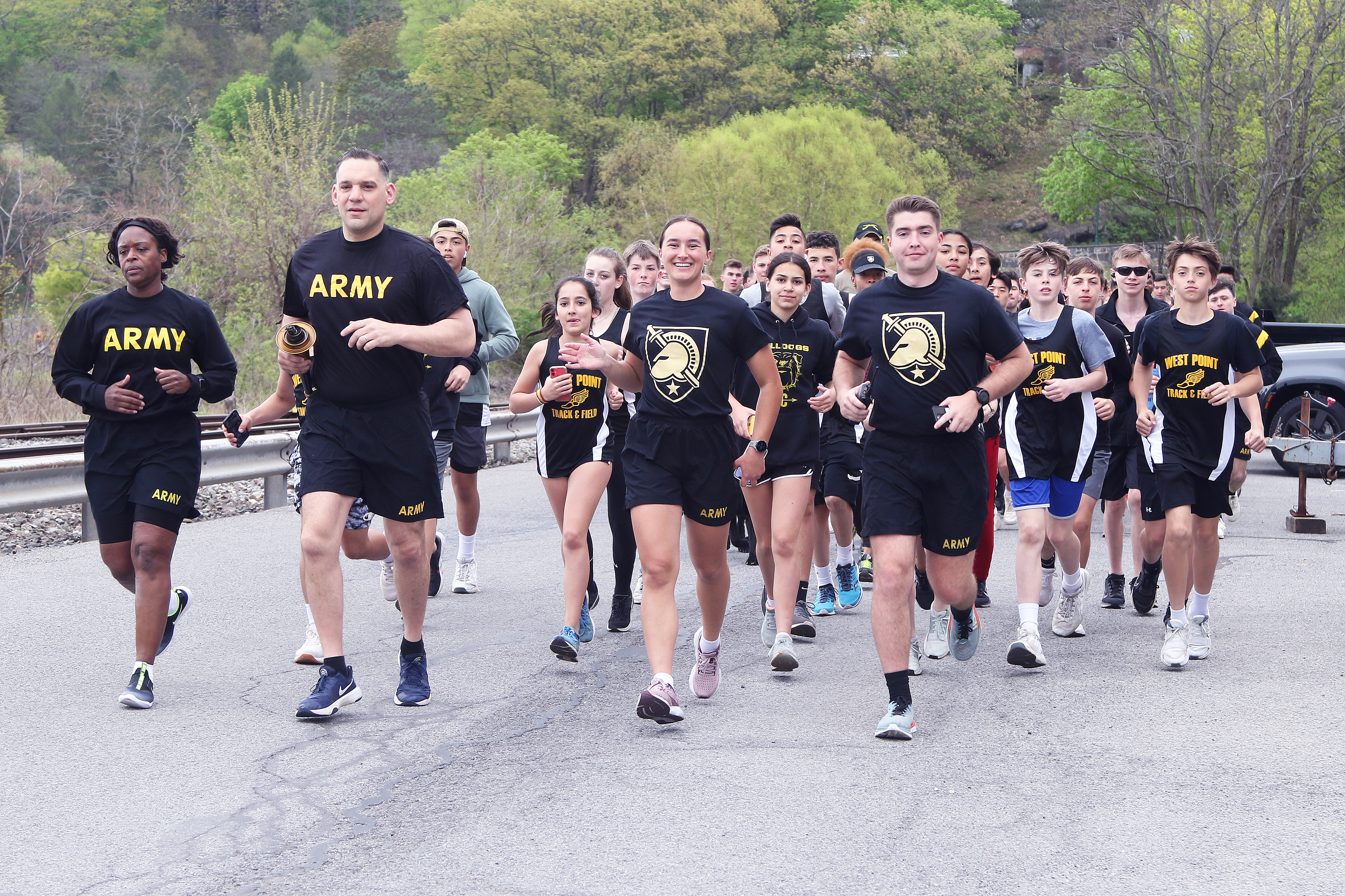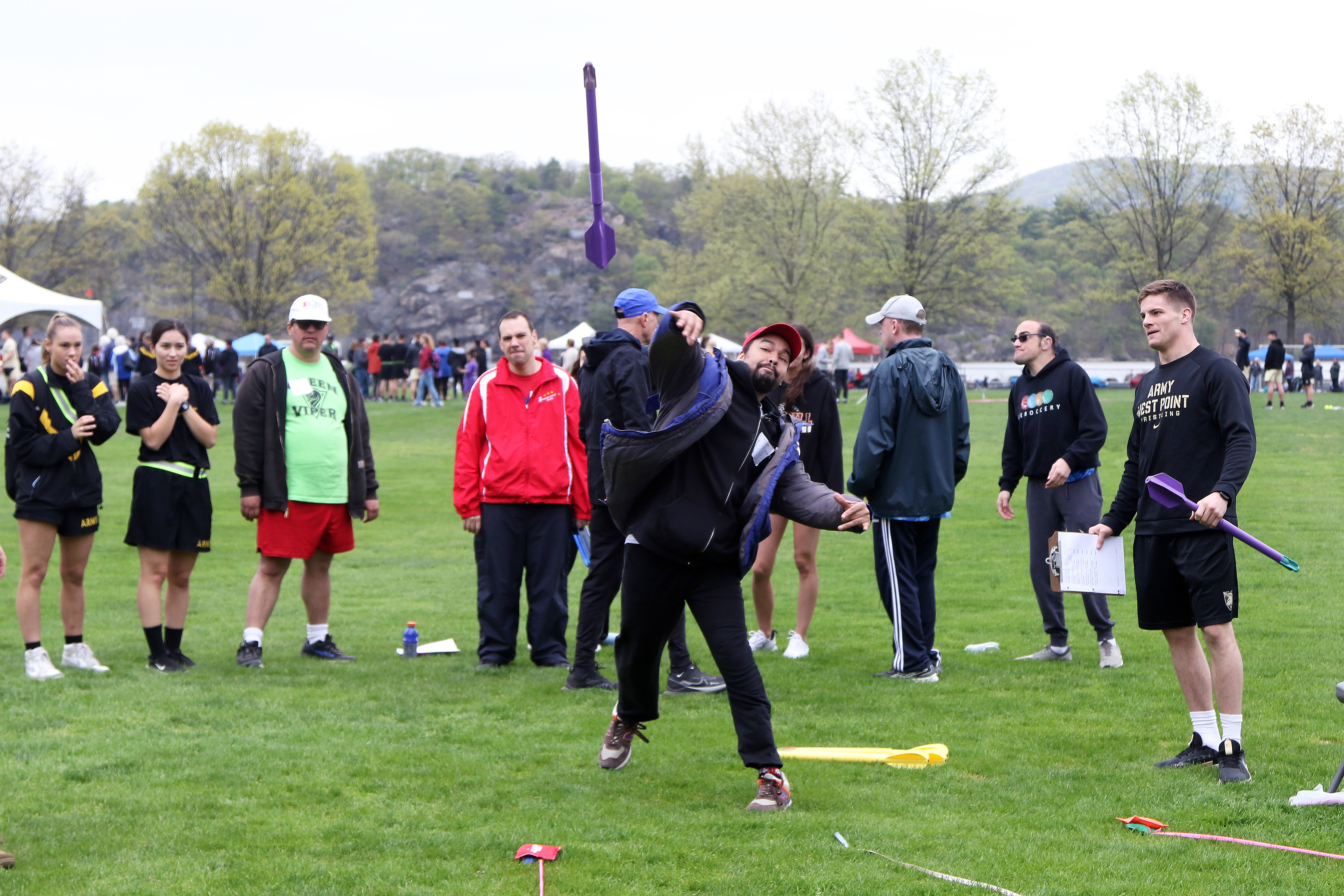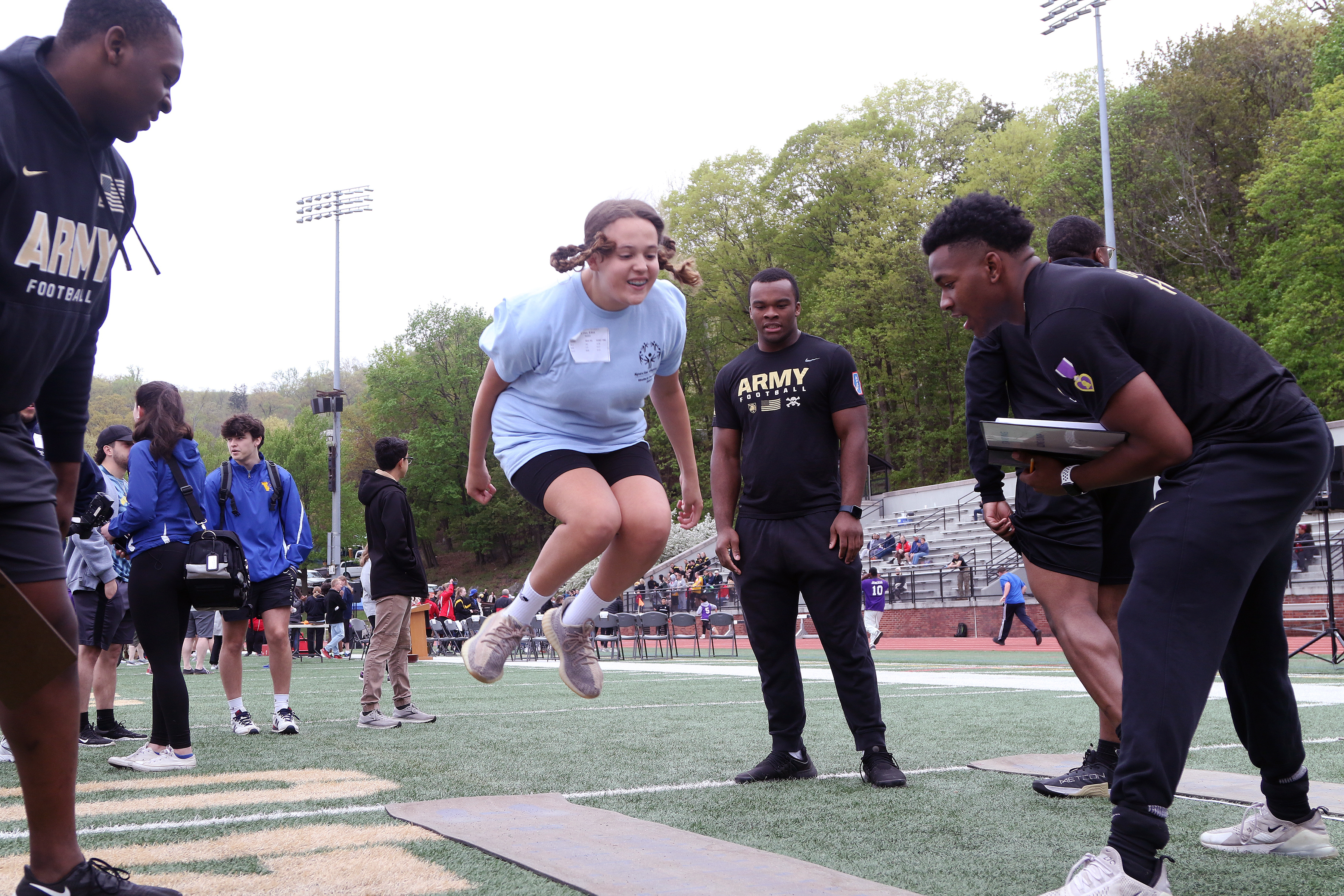Screams and cheers of excitement billowed through the Class of ‘62 Room of the Arvin Cadet Physical Development Center as powerlifting competitors dug deep and used all their strength to thrust their weighted bar into the sky. This same scenario of encouragement from family, friends and volunteers also took place at Crandall Pool as swimmers navigated the water and track and field athletes executed their talents at Shea Stadium and the athletic field in its vicinity.
This competition took place among special athletes during the 48th annual Hudson Valley Special Olympics (HVSO) Spring Games April 22 at the U.S. Military Academy. Approximately 600 athletes from the Hudson Valley, New York City, Long Island and the Capital Region of Albany participated in the annual competition for those with physical or intellectual disabilities to perform athletic feats and enjoy themselves in a safe and welcoming environment.
While the games took place last year at the U.S. Military Academy Preparatory School, this was the first time since 2019 that the Special Olympics returned with full participation to its usual West Point onsite locations and with a greater number of exuberant volunteers and spectators.
Department of Behavioral Sciences and Leadership instructor, Maj. Steve Fennessy, who was the officer in charge of the HVSO, said it was a significant effort by all to get the games back on track after the combination of hiatus and limited participation due to the pandemic in recent years. Normally, the games are hosted by Omicron Delta Kappa (ODK), the leadership honor society of BS&L, but this year it was extended out beyond ODK and BS&L majors to anyone interested in helping lead the games among cadets.
“It was great to see the greater community support the return of the Special Olympic Games to Shea Stadium and Arvin Gymnasium,” Fennessy said. “The volunteers were incredibly giving of their time and energy. The U.S. Corps of Cadets (USCC), the Army West Point Athletics Department, Garrison Headquarters, (James I.) O’Neill High School and numerous club teams were instrumental in making this day a success.”
Fennessy credited Class of 2023 Cadet Kiersten Eggers, the cadet in charge of the HVSO, and her planning team of approximately 20 cadets for their job of ensuring the games were fully supported.
“This group (of cadets) completed multiple planning sessions and did an outstanding job recruiting volunteers to ensure a memorable competition for the attending athletes,” Fennessy said. “The last time the games occurred in this capacity was 2019, and Kiersten (Eggers) and her team worked tirelessly to bring the games back to the forefront.”
Cadet volunteers ranged from 500-600 total to help the athletes throughout the day in their events, which all began with the parade of athletes. The parade of athletes was led by the USCC Color Guard with the colors and the West Point Band following behind playing music to begin the pageantry. The West Point Parachute Team had to nix their jump into Shea Stadium due to the windy, gloomy conditions, but that did not damper the excitement of the following torch run.
Members of the Corps of Cadets, West Point Garrison leadership and a handful of Special Olympic participants ran the torch from the West Point Middle School onto the stadium field to hand it off to West Point community member Connor Mitchell to light the torch. Mitchell, the son of Jill and Deputy Garrison Commander of U.S. Army Garrison West Point Erik Mitchell, lit the flame which officially began the games.
After the opening ceremonies were complete, the athletes took part in track and field (about nine different events), swimming and powerlifting as cadets oversaw the results and distributed the medals to the participants during the six-plus-hour event.
To make the event go off without a hitch, a cohesive group of cadets came together as a staff and performed the duties needed to make this April day special for all involved.
Eggers led the group of 21 staff members as they had their initial meeting in December to get things kicked off. The next meetings established a task order, staff roles and kept rolling with the progress reports with supporting agencies at least once a month up through April.
Eggers recognized her staff for their hard work through the process to include Class of 2024 Cadet Elisabeth Ake, the executive officer; Class of 2023 Cadet Simon Sekulovski, the operations officer and lead planner; and Luke Doyle, the Army Athletics representative. Eggers said she put in at least 70 hours of work toward the HVSO, but the other staff members were incredible for their time spent in their supporting roles.
“There were a lot of things we did as a team,” Eggers said. “Simon Sekulovski is amazing. (As) our cadet S-3, he really did a lot of the heavy lifting. (Sekulovski) really did all the planning for it. He coordinated with everybody and helped create the timelines.
“Elisabeth (Ake) is our XO, and she took charge of the torch run,” Eggers added. “She was helpful in getting involved with that while managing the many pieces. Then Luke Doyle was a huge main player in getting the (corps squad) teams involved because he is a team captain (of men’s soccer).
“He used that network, and we ended up with about 150 ODIA athletes,” Eggers concluded. “He got a bunch of people motivated to come out and happy to help out here.”
Eggers thanked the Directorate of Cadet Activities for providing pizza and the Directorate of Emergency Services for providing the fire truck during the torch run, and she was also very thankful to the athletic teams and other cadets for their participation to help as volunteers and escorts.
“The (cadets) really made it possible … the fact that we were able to pair so many up with athletes and teams, they were able to just be there as supporters and cheer them on, which was great to see,” Eggers said.
As a soon to be Air Defense Artillery officer, Eggers did feel this experience helped her prepare for her future in that realm.
“A big piece, for future officer me, would be the planning aspect and all the different moving pieces that come into planning an event such as this,” Eggers said. “This aspect of planning is new to us … to literally take charge and set up all these building blocks that perfectly fall together on the day of (the event). There was definitely a sense of pride of what our team has done with what we worked on for the past five months – because it went really well today.”
This is the first time Eggers had participated in helping with the Special Olympics, although when she lived in Massachusetts, she worked at Hippotherapy Fun Farm during her middle school and high school years. It is another form of Special Olympics, but the athletes worked with horses. However, when the opportunity for this presented itself, she wanted to make a positive impact on West Point and the community.
“This is incredibly inspiring, it meant so much to me,” Eggers said. “It’s great to give back to the community and beyond the community … and just the excitement some people had when they talked about it was something that made all the hard work worth it.”
Another cadet who reveled in working and helping during the Special Olympics was Class of 2025 Cadet Cameron Lee, who grew up in a school system in Rockland County, New York, which had a big special education program. For him, having the day be all about the athletes was a wholesome experience.
“It doesn’t get better than this watching these kids do what we do every day, and the smiles it brings to them,” said Lee, who is on the Army West Point Powerlifting Team. “Being able to help them out and make their experience exceptional with this day … it makes doing the hard things like getting up super early and setting up, and preparing for this event for many months beforehand all worth it seeing it in front of me, them reaching their dreams – it’s really rewarding.”
As a powerlifter, Lee found it motivating to see the athletes succeed knowing they have their own circumstances to overcome to compete.
“Watching them being able to lift these weights and enjoy doing it at the same time is super motivating and makes me want to work harder,” Lee said. “I couldn’t appreciate more what they’ve opened my eyes to with their hard work. I think having a whole day dedicated to them is important, not only for their sake, but also to spread awareness as well.”
Lee explained that he believes more schools should take note of the Special Olympics event and emulate it into things they can do for the ‘physical and intellectual disabilities’ community.
“It could make their entire life and it’s a memory that they will hold close to them forever,” Lee said. “There aren’t too many days where everything is dedicated toward them, their enjoyment and their skill sets. Being able to administer that and express that to everyone watching is really pleasant to see.”
Lee was the S-1, personnel and administration, for the HVSO leading up to the event. He helped with accountability, planning out locations and everything involved with the event.
“From every volunteer we had to every member of the staff to Maj. Fennessy, it took a full team to get this done and have it go as smoothly as it went,” Lee said. “I am grateful for all the people around me that made this experience for us, and the athletes go as smoothly as possible.”
Eggers touted Fennessy for the support he gave to cadets while helping them learn how to lead an operation along the way.
“This is the first time we’ve planned and seen this (type of operation) on a big scale,” Eggers said. “(Fennessy) supported us and let us take charge, but he also made sure everything still worked out.
“We talked about commander’s intent … there was a lot of, ‘hey, here is what has to happen, here is what we think should happen, let’s talk about it, execute and fill the gaps’ – I learned a lot that way,” she added.
When the day complete, Lee reiterated how rewarding an experience it was for him to help the athletes get a chance to perform and bring them happiness.
“The moment you see these athletes doing what they’re doing, and you see how all the work we put in makes them feel, it’s the most rewarding thing I’ve felt in a very long time – more than any grade or any performance in a sport can offer me,” Lee said. “To see my decision to work this and how that affects these kids and athletes – it truly means a lot. It’s great to see how actions of myself and the people around me can positively affect a whole community of people.”
